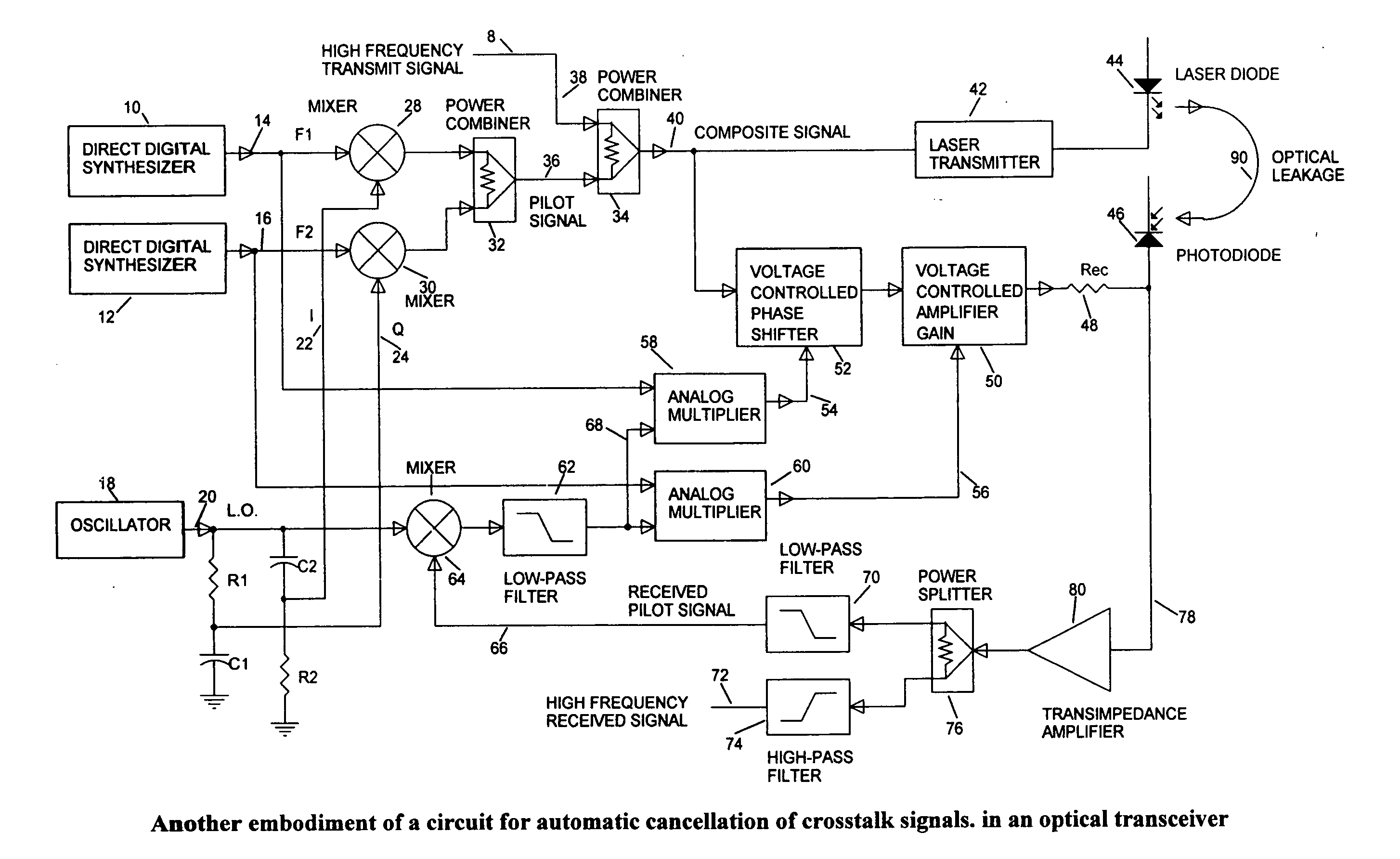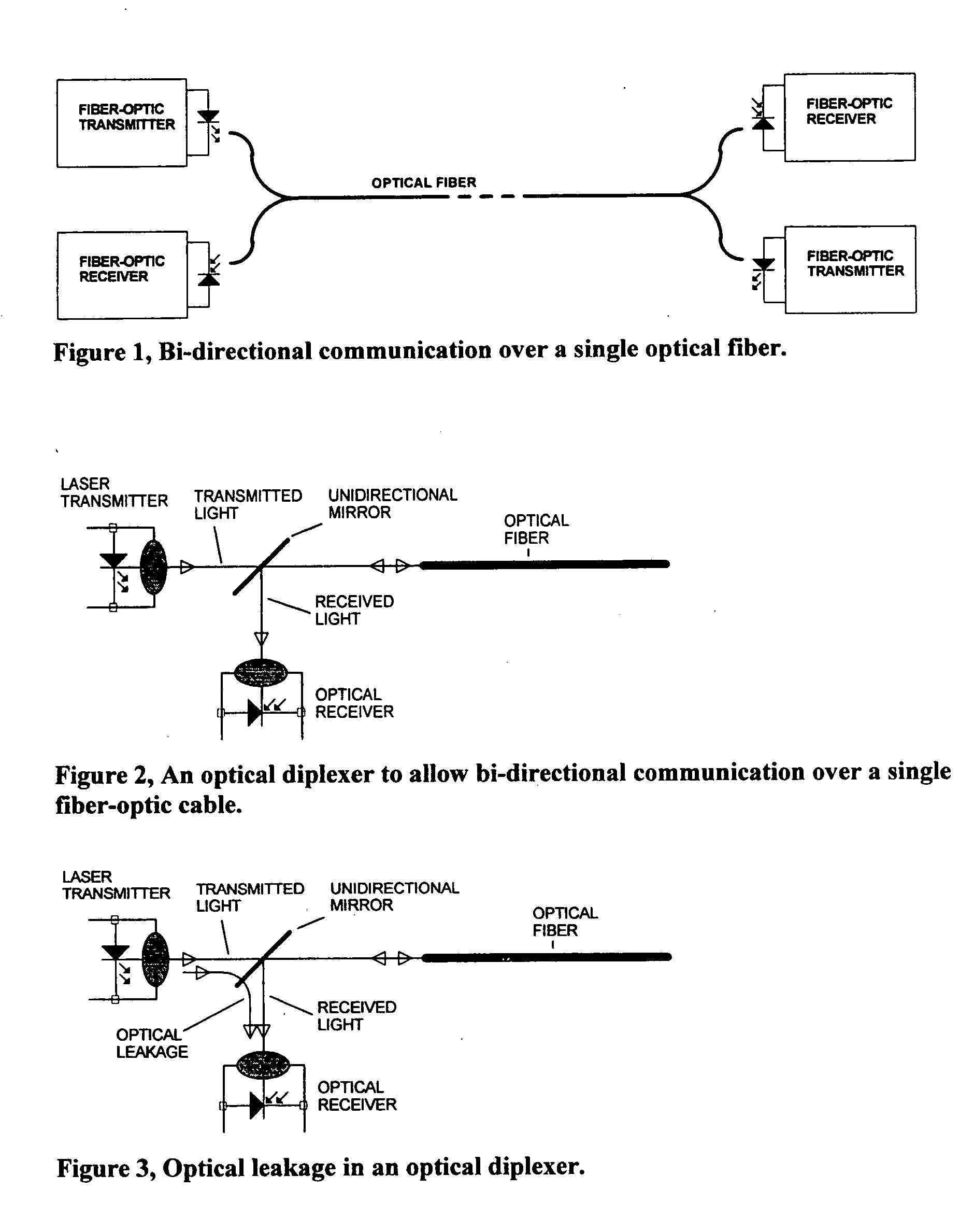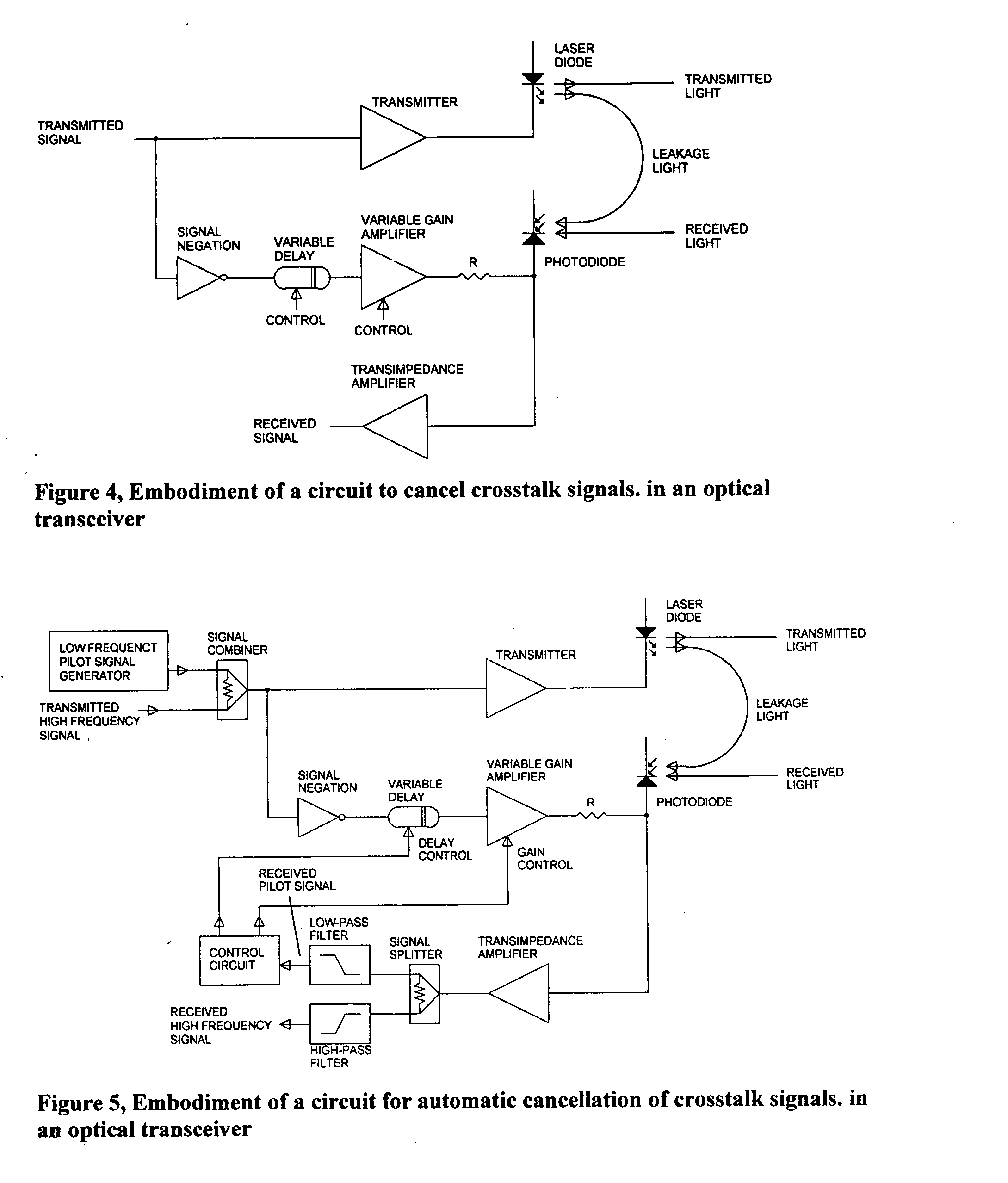Cancellation of transmitted signal crosstalk in optical receivers of diplexer-based fiber optic transceivers
- Summary
- Abstract
- Description
- Claims
- Application Information
AI Technical Summary
Benefits of technology
Problems solved by technology
Method used
Image
Examples
Embodiment Construction
[0005] Intuitively, cancellation of undesired signals is possible by a summation of the unwanted signal, and another signal identical to the unwanted signal, but shifted in phase by 180°. Since both the laser transmitter, and the receiver affected by the crosstalk are housed in the same module, the signals transmitted by the laser transmitter, and eventually are leaking into the receiver and causing the crosstalk are known and available. Hence the received signal, which contains some signals that have leaked from the transmitter, can be summed up with the inverse of a sample of the transmitted signal. For full cancellation, the sample of the transmitted signal must be exactly the same magnitude as the magnitude of the leaked signal embedded in the received signal. The sample of the transmitted signal must also be phase shifted by exactly 180° with respect to the received crosstalk signal. In the circuit shown in FIG. 4, a sample of the transmitted signal is negated, converted into c...
PUM
 Login to View More
Login to View More Abstract
Description
Claims
Application Information
 Login to View More
Login to View More - R&D
- Intellectual Property
- Life Sciences
- Materials
- Tech Scout
- Unparalleled Data Quality
- Higher Quality Content
- 60% Fewer Hallucinations
Browse by: Latest US Patents, China's latest patents, Technical Efficacy Thesaurus, Application Domain, Technology Topic, Popular Technical Reports.
© 2025 PatSnap. All rights reserved.Legal|Privacy policy|Modern Slavery Act Transparency Statement|Sitemap|About US| Contact US: help@patsnap.com



